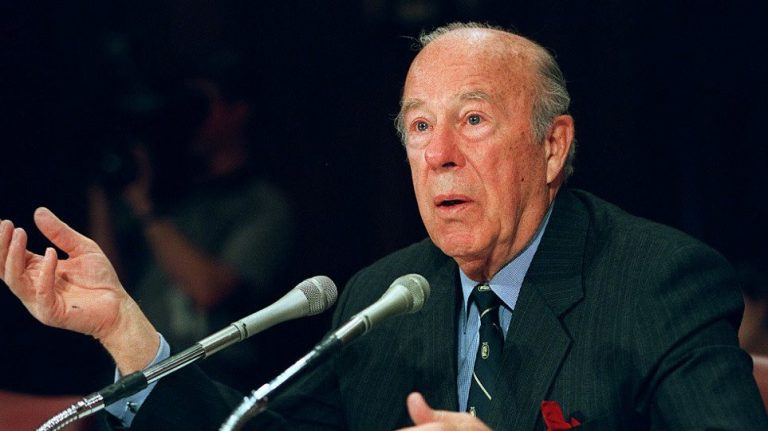George P. Shultz, who presided with a steady hand over the beginning of the end of the Cold War as President Ronald Reagan’s often embattled secretary of state, died on Saturday at his home in Stanford, Calif. He was 100.
His death was announced by the Hoover Institution, where he was a distinguished fellow. He was also professor emeritus at Stanford’s Graduate School of Business.
Mr. Shultz, who had served Republican presidents since Dwight D. Eisenhower, moved to California after leaving Washington in January 1989. He continued writing and speaking on issues ranging from nuclear weapons to climate change into his late 90s, expressing concern about America’s direction.
“Right now we’re not leading the world,” he told an interviewer in March 2020. “We’re withdrawing from it.”
He carried a weighty résumé into the Reagan White House, with stints as secretary of labor, budget director and secretary of the Treasury under President Richard M. Nixon. He had emerged from the wars of Watergate with his reputation unscathed, having shown a respect for the rule of law all too rare in that era. At the helm of the Treasury, he had drawn Nixon’s wrath for resisting the president’s demands to use the Internal Revenue Service as a weapon against the president’s political enemies.
Explosion in power substation: Power cuts in Athens & Peloponnese (video-photos)
Turkey Uighurs fear sellout to China in exchange for vaccine
As secretary of state for six and a half years, Mr. Shultz was widely regarded as a voice of reason in the Reagan administration as it tore itself asunder over the conduct of American foreign policy. He described those struggles as “a kind of guerrilla warfare,” a fierce and ceaseless combat among the leaders of national security.
He fought “a battle royal” in his quest to get out the facts, as he later testified to Congress during the Iran-contra affair. The director of the Central Intelligence Agency, William J. Casey, followed his own foreign policy in secret, and the State Department and the Pentagon constantly clashed over the use of American military force. Estranged from the White House, Mr. Shultz threatened to resign three times.
Read more: NY Times
Ask me anything
Explore related questions





